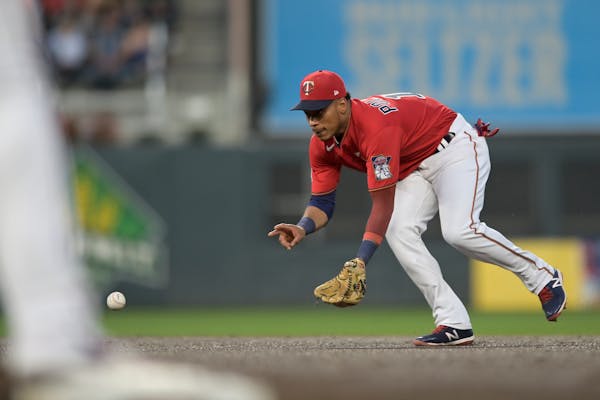The Twins were expecting his call.
When the team hired 32-year-old David Popkins to be their new hitting coach earlier this month, it took Josh Donaldson less than a day to phone Target Field for information: Who is this guy? What's his approach? How is he going to make us — and me — better?
"We told him, 'Josh, we may have hired the only guy who likes talking [about] hitting more than you,' " Derek Falvey said with a laugh. "We got him a guy who likes to talk at length about wrist action and hip swivel and the like. Josh seemed pretty fired up about it, about next year."
Yet it's the next several hires that the Twins make, ones to supplement the actual playing roster, that figure to interest him even more. In addition to being their No. 1 hitting theoretician, Donaldson holds another distinction on the Twins that many of their fans would like to change: With a $21 million salary, he is their only player due to earn more than $10 million next season.
Odds are, they will add at least one more — even with their reputation for frugality, the Twins haven't fielded fewer than two eight-figure salaries in any of the last 14 seasons. But as an offseason of uncertainty for the entire sport gets under way, with a possible lockout and freeze in offseason transactions looming if a new Collective Bargaining Agreement is not agreed to by Dec. 2, it's not clear when or how they will do so.
There is apparent clarity about one thing, however: They can afford it.
With less than $80 million on the payroll at the moment, the Twins could have nearly $50 million to spend on free-agent and trade acquisitions this winter and still maintain their payroll at the same level as last year's, which amounted to $125 million for the Opening Day roster.
And last year's level, despite revenues that plunged during back-to-back pandemic seasons, is more or less what Falvey, the team's president of baseball operations, plans to spend.
Twins chairman and operating owner Jim Pohlad "has never said, 'This is the [payroll] number.' That's not the way he operates. And that's been great. We've had a lot of flexibility the past few years," Falvey said. "Obviously the last couple of years have been challenging on a lot of fronts, but I expect our resources to line up in that range again."
Part of that flexibility stems from a remarkable wave of young talent that surged through the team's farm system and began arriving in Minnesota about six years ago. The team's current base of position players — Byron Buxton, Jorge Polanco, Max Kepler and Miguel Sano — were part of that, and while the latter three all have signed multi-year contracts, none include guaranteed salaries higher than $11 million, and none are above $9 million in 2022.
Thus the Twins have only seven contracts in place for 2022 at the moment, committing them to just $46.6 million in salaries. They also have between seven and nine players eligible for salary arbitration, a process that projects to cost them roughly $27.1 million — but only if none of those players are cut — or "non-tendered" in the vernacular — over the next couple of weeks.
Throw in minimum-salary players to fill out their 26-man club, and Falvey has more than one-third of his budget still to spend.
Good thing, too, because pitching and shortstop are the Twins' most glaring needs, and pitchers and shortstops are the priciest items on this winter's list of available players. Max Scherzer and Carlos Correa are free agents who expect to entertain salaries in the $30 million range. But pitchers like Marcus Stroman of the Mets, Kevin Gausman of the Giants and Jon Gray of the Rockies might listen to inquiries from the Twins.
Then again, attracting effective free-agent pitchers is something the Twins have only experienced mixed success with. Ervin Santana, whose four-year, $55 million contract is eclipsed in Twins' free-agent history only by Donaldson's $94 million deal, was effective for three of his four seasons, a tenure that stands out among the lesser investments they made in Kevin Correia, Mike Pelfrey, Ricky Nolasco, Homer Bailey, J.A. Happ and Matt Shoemaker.
Perhaps that's why Falvey emphasized his intention to look beyond just free agency, or even the trade market, when contemplating next year's pitching staff. The Twins had been planning for another wave of Twins-raised talent.
"One of the real disappointing aspects of losing the 2020 year and how that impacted 2021 is that we had a vision for [starting-pitching prospects like Josh] Winder, [Jhoan] Duran, [Matt] Canterino, [Cole] Sands, [Jordan] Balazovic — that whole crew of starting pitchers, all getting into position where maybe they could start for us, getting ready to impact us. And right now, just because of what we've all gone through, they're all just a little behind that," Falvey said.
"I'm not saying they couldn't impact us next year, but it's just not something we want to count on out of the chute. So we're focused on making sure we get that group as healthy as possible and back on the field, and having something for them to build around."






